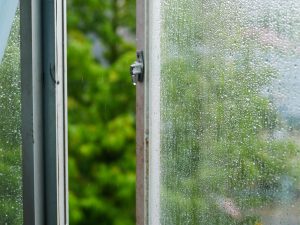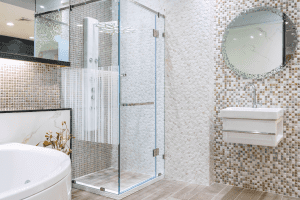Are you wondering whether your electrical panel doors at home or your workplace should be kept closed or be left open for easy access? Well, you've come to the right place! We've thoroughly researched the topic and consulted with experts to give you the comprehensive answer you're looking for.
Electrical panel doors have to be locked in commercial buildings as per OSHA. As for residential establishments, it doesn't necessarily need that the doors be closed. The National Electrical Code (NEC) is silent concerning the requirement of electrical panel doors in houses. As long as they have a dead front cover that'll protect you from the current-carrying parts, those are NEC standard approved.
Do you still have questions in mind? Continue reading to learn more about the topic. We'll also answer pertinent questions along the way, including the following: Where electrical panels shouldn't be placed; how far do electrical panels have to be from the window; and is it legal to cover an electrical panel?
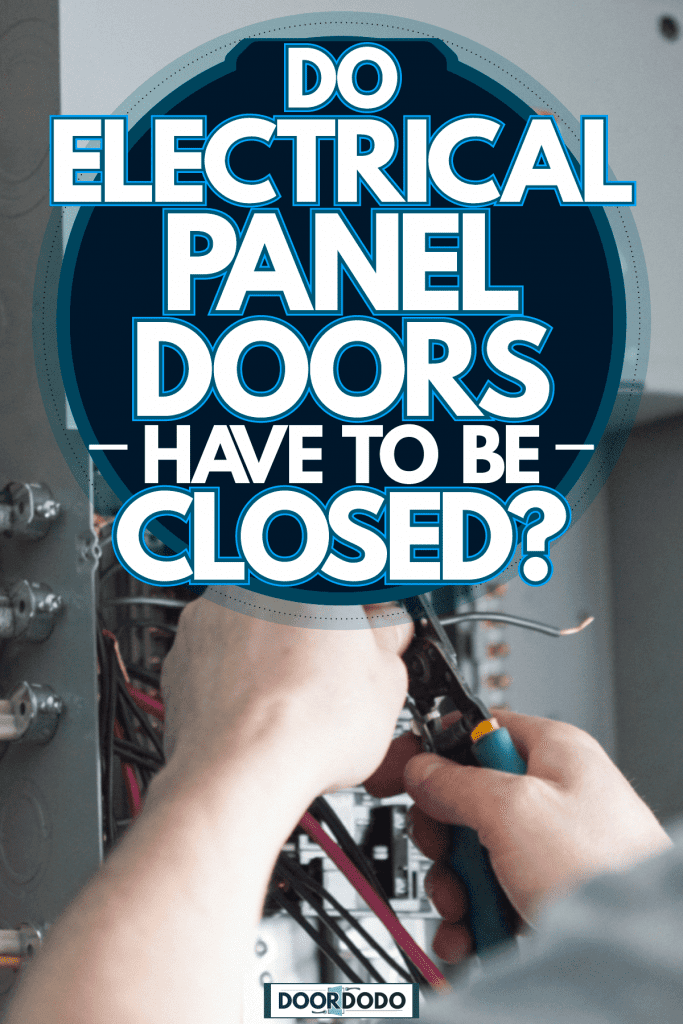
Residential and commercial electrical panel doors
The National Fire Protection Association (NFPA) has published National Fire Codes, including the National Electrical Code. The NEC is a set of rules adopted by different states to implement electrical safety methods and regulate the installation of electrical equipment, cables, and wires.
The Occupational Safety and Health Administration or OSHA, on the other hand, is the one responsible for ensuring that employees work in a safe working environment by providing and enforcing rules and safety standards.
About installing electrical panels in business or residential establishments in the United States, you should comply with the criteria set by OSHA and your local codes, which are mostly based on the NEC, to secure your employees' and family's safety.
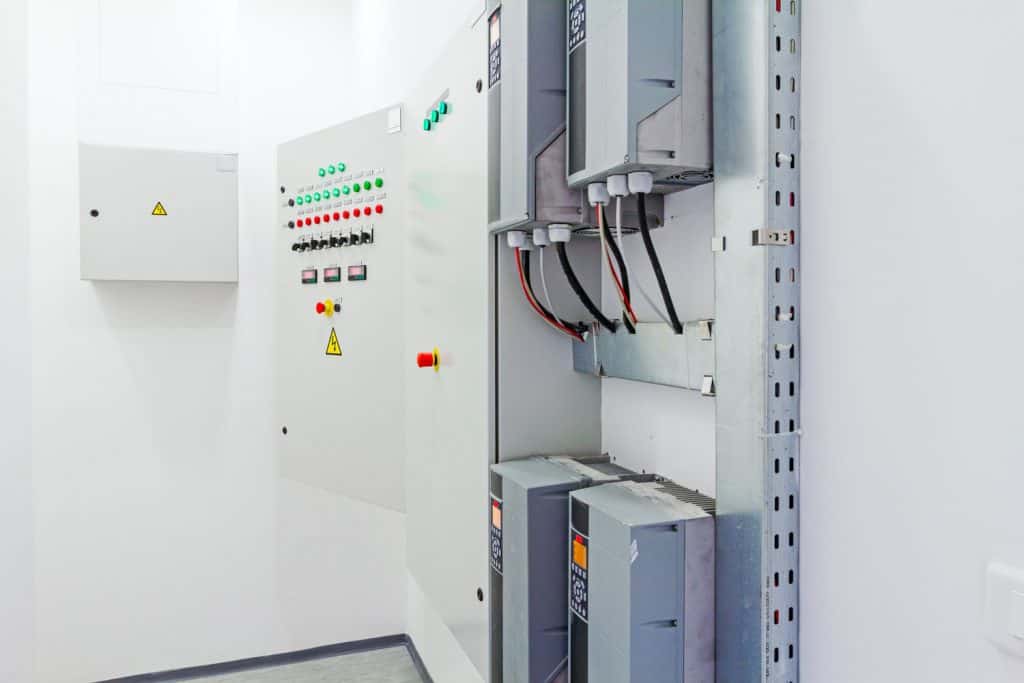
You may have observed that when you purchase an electrical panel box, it usually comes with a door. However, the NEC doesn't mention requiring electrical panels to have doors, more so that electrical panel doors be closed. Instead, the NEC required that if your panels have doors, they should open to a full 90 degrees angle.
Although the NEC doesn't mention the need for panel doors to be closed, it, however, required that electrical panels should have a dead front cover.
A dead front is an inner cover placed on top of the wires and buses. The breakers fit into the slots it has. The dead front will prevent the live wires from being exposed and will protect people from possible electric shock. This is maybe the reason why the NEC didn't require panel doors.
And as to business establishments, aside of course from installing a dead front cover, OSHA has required that electrical panel doors should be secured and locked for safety reasons. Hence, it should be closed. This will also prevent any moisture, dirt, and dust to accumulate in the interior part of the panel.
If your electrical panels have doors with them, it wouldn't hurt if you close them if you like to. This would prevent your children from touching any parts of the electrical panel. This would also protect your breakers from getting wet directly or from any other elements that could damage your electrical panels.
Does OSHA require electrical panels to be closed?
The OSHA requires electrical panel doors in commercial establishments not only to be closed but must also be locked. And it must only be opened by trained individuals or qualified persons for maintenance purposes.
Is it legal to cover an electrical panel?
It is legal to cover your electrical panel. What is illegal is if you block it and make it inaccessible. As long as the cover doesn't violate the prescribed working clearance set by the NEC, covering your electrical panel is alright.
How to cover electrical panel in living room
To cover electrical panels in living rooms, you should always first consider safety more than anything else. You may cover your electrical panels using light art pieces for easy access. You may also paint on your electrical panels using metal spray paints.
Also, a customized cabinet and a picture frame will be a great idea to cover panels. If you choose a customized cabinet door as a cover, make sure that it would swing open for at least 90 degrees, as mentioned above.
The video below will give you an idea of how to cover electrical panels in your living room to make it more pleasing.
How far does an electrical panel have to be from a window?
Electrical panels have a required 30-inch horizontal working space clearance. The working space height from the ground or floor up to the top should be at least 6 1/2 feet or the height of the electrical panel, whichever is greater.
Also, a 30-inch working clearance would be required at the rear part of the equipment or electrical panel. Hence, your electrical panel should not be located anywhere near a window within these boundaries for safety and compliance purposes.
Can an electrical panel be behind an open door?
As specified in the NET, the clearance needed in front of the electrical panel should be at least 3 inches. It must also have a wide clear horizontal working space of at least 30 inches if your electrical panel is operating at 1000V, nominal, or less.
As long as the electrical panel is readily accessible, and the door can easily be closed or doesn't impede, the panel's working space clearance provided by the NEC, then there is no problem with installing electrical panels behind an open door.
Where are electrical panels not allowed?
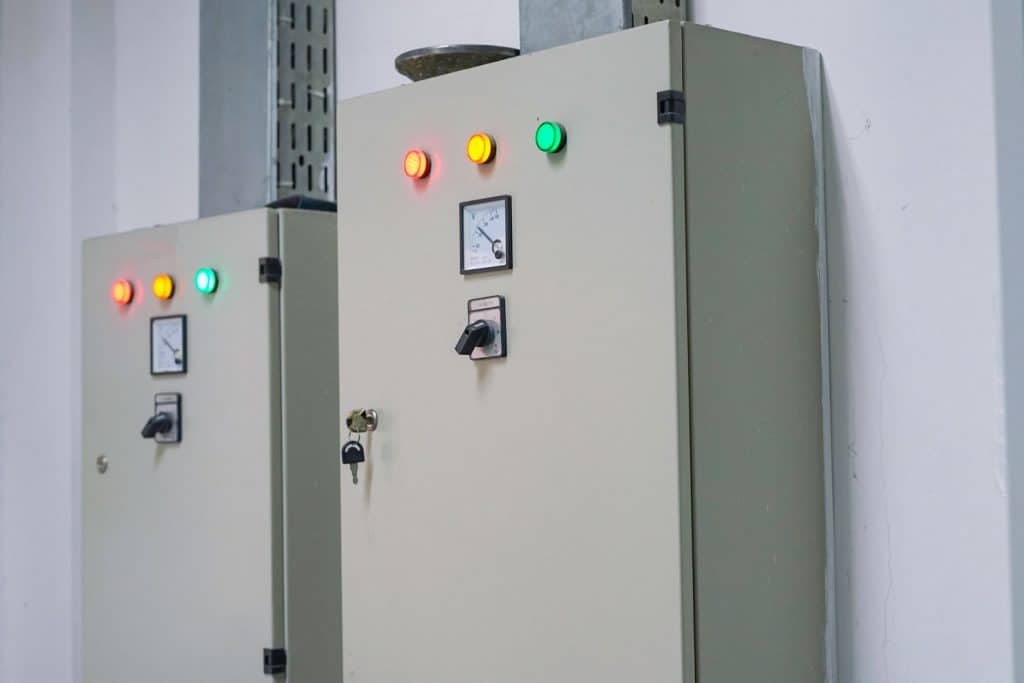
According to the National Electrical Code Art.240.24 (C) and (D), overcurrent devices, including an electrical panel, should be placed in a location where they will not be exposed to any physical damage. It should also not be placed in a closet or any area with easily ignitable material.
NEC Art.240.24 (E) also states that overcurrent devices must not be placed in bathrooms as to dormitory units, dwelling units, and guests suites or guest rooms of motels or hotels. It is common knowledge that you should put your electrical panels away from any wet surfaces or moisture to prevent any hazard.
Also, as stated on NEC 240.24 (F), an overcurrent device should not be placed over a stairway's steps.
Hence, your electrical panels should not be located just above your gas range, inside a shower, hidden behind a huge bookshelf, behind a gas tank, below your kitchen sink, and any other place that is flagging a possible hazard.
Final Thoughts
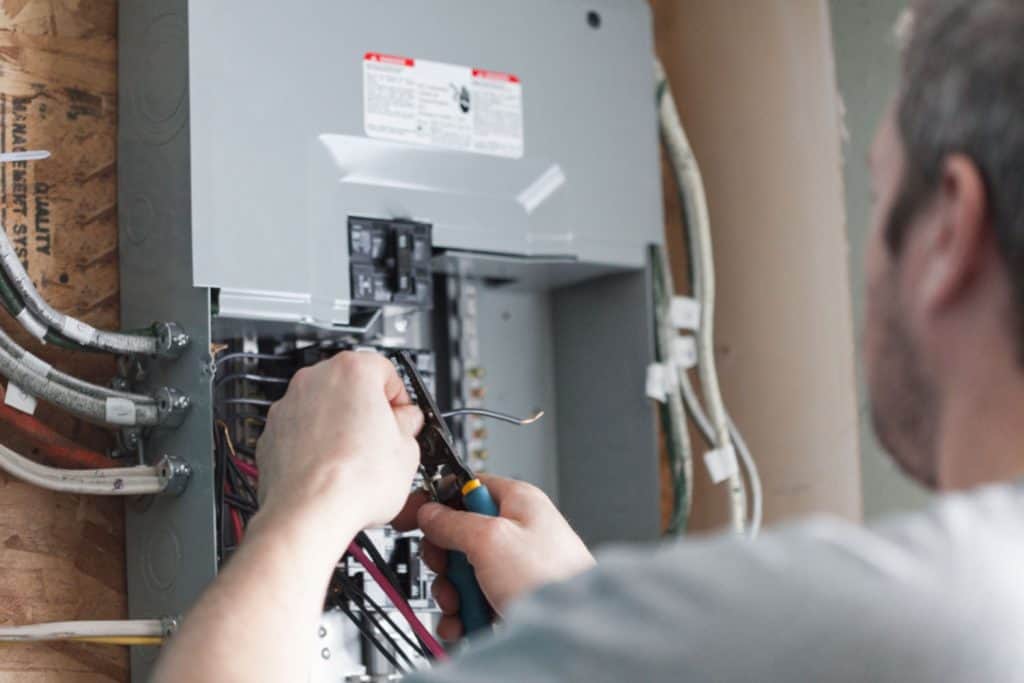
According to OSHA, electrical door panels in commercial and industrial establishments should be closed and locked as a safety hazard. It should only be opened and accessed by trained personnel for repairs and other maintenance purposes.
On the other hand, as for electrical panels in houses, the NEC doesn't require that the doors should be closed. It didn't even issue a requirement that electrical panels should have doors. But it did require that electrical panels should have dead front covers that protect you from exposures to live wires.
Want to know more about doors? Check these posts before you go:

